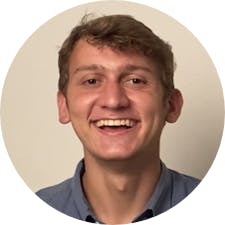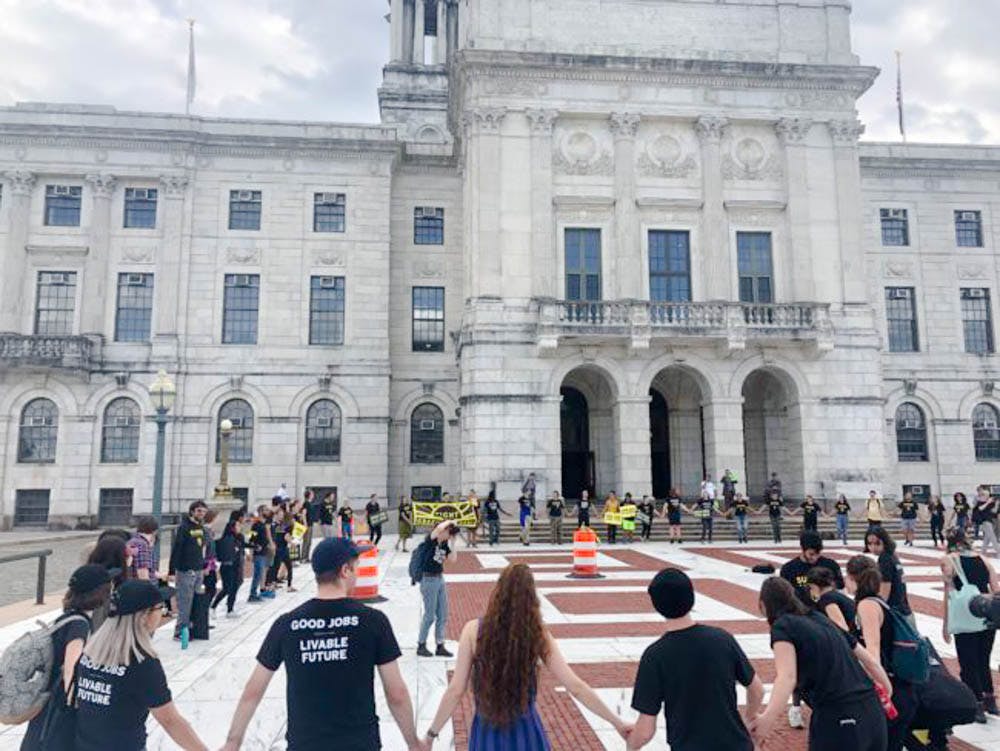The Sunrise Movement’s Providence hub will split into a city chapter and a Brown-Rhode Island School of Design chapter over the coming weeks in an attempt to address long-standing concerns about the role of University activists in the Providence area, according to multiple organizers from the Providence chapter.
A youth-led political group, Sunrise Providence exerts pressure on local politicians to take action on climate change. The group is one hub in the national Sunrise Movement, which has over 300 local chapters and advocates for passing a Green New Deal. In addition to tackling racial and economic inequality, the Green New Deal bill attempts to make the United States carbon neutral.
Unlike other city-wide Sunrise hubs, many of which formed separately from college campuses, the Providence chapter of Sunrise centered around the University’s campus from the beginning. But the recent decision to split the Providence chapter stems from internal concerns over a variety of issues such as the overrepresentation of University students and the barriers that organizing on College Hill presents to participants not affiliated with the University.
Last spring, an estimated 75 percent of the Sunrise Providence group was from Brown, said Emma Bouton ’20, a co-manager of Sunrise’s summer fellowship and an organizer with Sunrise Providence. The chapter’s demographics did not necessarily represent the Providence area, said Matthew Mellea ’21.5, a grassroots fundraiser for Sunrise nationally and a former co-manager of Sunrise’s Rhode Island fellowship.
Brown students “tend to be wealthier, whiter than Providence and all of Rhode Island,” he said.
Projected data from the 2018 U.S. Census reported that 42 percent of Providence residents are Hispanic or Latino and 15.6 percent are Black or African American, but, as of fall 2018, only 11.2 percent of the University’s undergraduate students identify as Hispanic or Latino and 6.3 percent identify as black, according to the Office of Institutional Research
“There’s a tension between ‘I want to help the community,’ but ‘you’re not a part of that community,’” said Providence Hub coordinator Joselin Morente. Morente expressed hope that splitting the chapter could make the Providence hub more accessible to non-white activists and organizers.
“If we’re talking about these frontline communities and these marginalized communities that are going to be affected by the climate crisis first, we need to center those voices without tokenizing them,” she said. “Having a hub that’s made up more of POC people allows you to feel more comfortable, because you don’t always have to explain yourself,” or the ways in which “being brown or black really does have an impact on your life.”
But splitting Providence off from the University presents another risk, as a representative view of Brown University may lead to a more homogeneous hub, Melea said. “We want to be striving for a little bit better than what is representative of Brown,” he said. “We want to be supporting Brown students who are low income, who are people of color in our organizing.”
“We want to be striving for a little bit better than what is representative of Brown,” he said. “We want to be supporting Brown students who are low income, who are people of color in our organizing.”
Ultimately, for Morente, the Sunrise split is the “best way to be actively anti-racist.”
Organizing on College Hill also created barriers for individuals unaffiliated with the University. Stepping onto an Ivy League campus can be intimidating for some group members, Morente said.
Getting up College Hill for non-students is equally tough, Bouton said, citing the lack of parking, long uphill walk and poor public transportation.
To address these concerns, the hub moved a number of its meetings over the summer off-campus to the South Side Community Center and South Side Library. When the split becomes official, Sunrise plans for the Brown hub to resume meeting on campus, while members of the Providence community will continue meeting off campus.
Moving forward, the University hub will focus on building College Hill campaigns and educating students about both the environmental movement and “white supremacy culture,” said Nina Wolff Landau ’20, a Sunrise Providence organizer who will oversee the Brown chapter this fall.
Meanwhile, the Providence hub will likely focus on developing partnerships with local activist groups and influencing local politics. Multiple organizers, including Alex Kithes M’15, a Woonsocket city councilor, said the split could give Sunrise more political leverage by containing more Rhode Island constituents.
“An elected official who doesn’t already understand the ramifications of not addressing the climate crisis, they’ll use any excuse possible,” Kithes said. “That’s one convenient excuse: they’re going to pay attention to their constituents or people who live in Rhode Island permanently versus college students.”
Brown students will still be allowed to attend Providence meetings and events, Morente said, especially those who plan on staying in Providence.
“We’re trying to work counter from all of the ways Brown is isolated from Providence,” Bouton said. “If we want numbers, Sunrise Brown can absolutely show up to the things Sunrise Providence has organized.”

Will Kubzansky is the 133rd editor-in-chief and president of the Brown Daily Herald. Previously, he served as a University News editor overseeing the admission & financial aid and staff & student labor beats. In his free time, he plays the guitar and soccer — both poorly.





